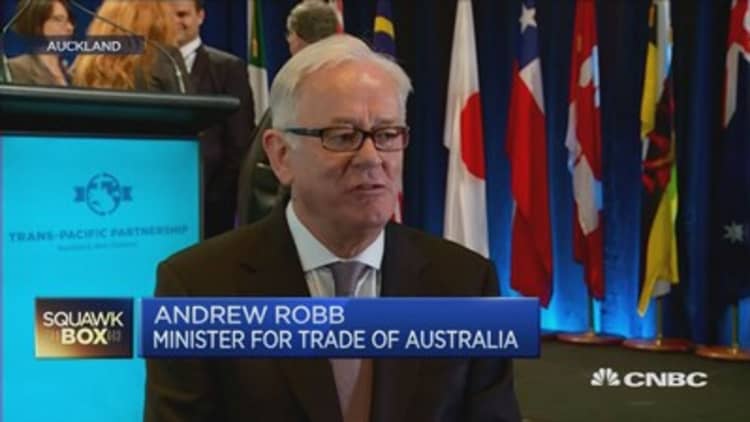Australia's central bank said the pace of economic growth should pick up gradually in the next few years without inflation being a problem, a benign mix that might provide it with the scope to cut interest rates further if needed.
In minutes of its Feb. 2 meeting, where the Reserve Bank of Australia (RBA) kept the cash rate at a record low 2.0 percent, the central bank reiterated that very low rates and a weaker local dollar were already underpinning growth.
"Based on the available data and the forecasts for economic activity and inflation, members judged that it was appropriate to leave the cash rate unchanged at an accommodative setting," the central bank said.
"There continued to be evidence that very low interest rates were supporting growth in household consumption and dwelling investment and that the depreciation of the exchange rate was boosting demand for domestic production as it adjusted to the evolving economic outlook."

There was nothing in the minutes to suggest that the central bank has shifted its conditional easing bias.
"The Board noted that the outlook for continued low inflation may provide scope for easier monetary policy, should that be appropriate to lend further support to demand."
Highlighting the RBA's level-headed approach to things, the Board began their discussion with developments in the domestic economy, while shrugging off the hysteria surrounding the recent turmoil in global financial markets.
"Members noted that recent economic data had, on balance, been positive and judged that there were reasonable prospects for growth to increase gradually over the forecast period while maintaining inflation close to target," the central bank said.
The RBA said whether financial market turbulence "presaged weaker global and domestic demand" remained to be seen.
Board members did discuss China at length, noting markets seemed uncertainty about whether Beijing can respond effectively to the challenges it faces.
Members agreed that the authorities still had scope to respond if the economy turned out to be much weaker than expected.
"However, any sharp slowing in economic activity in China could spill over to other economies in the region and adversely affect commodity prices, including those that are important for Australia," the minutes said.
The RBA next meets on March 1.


